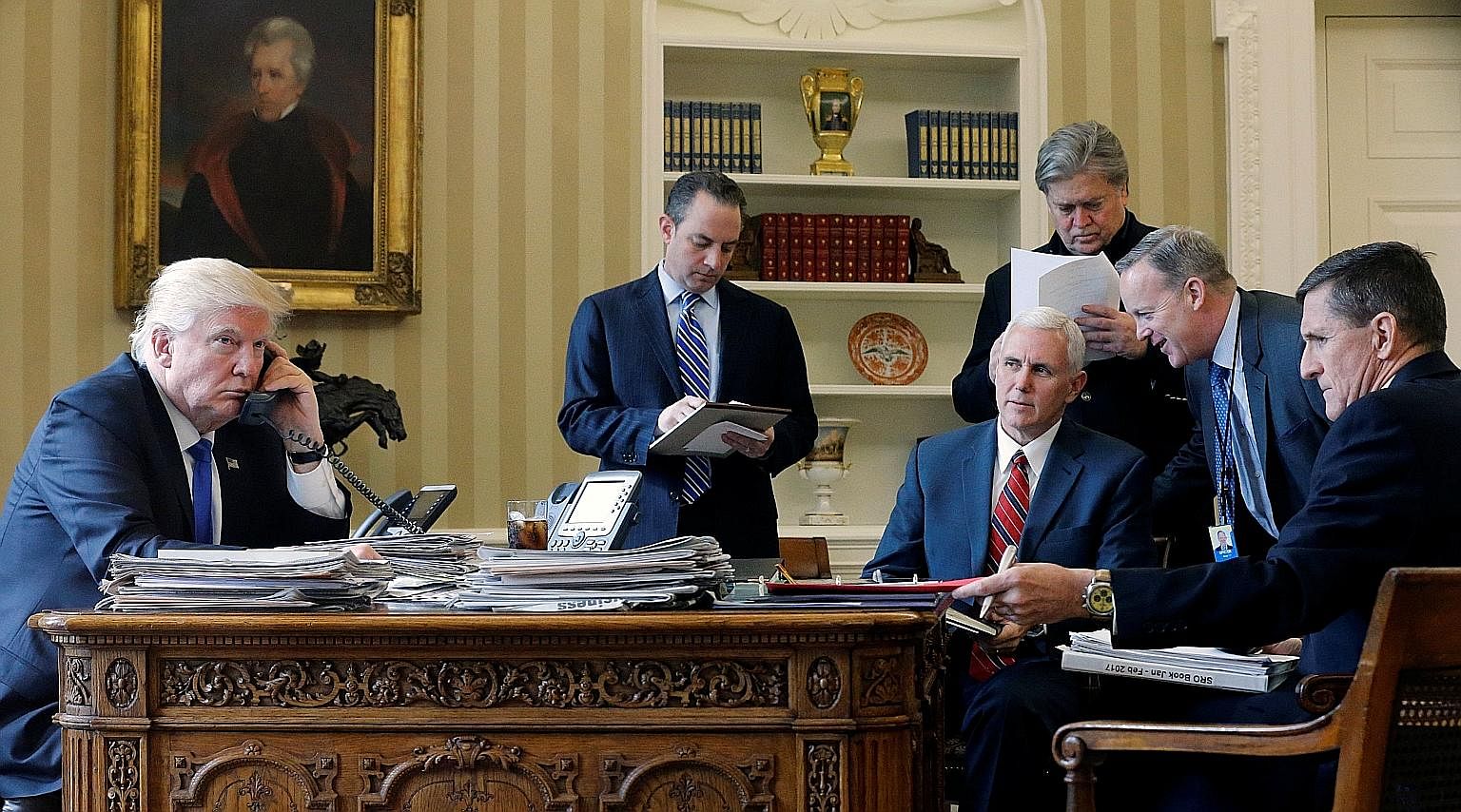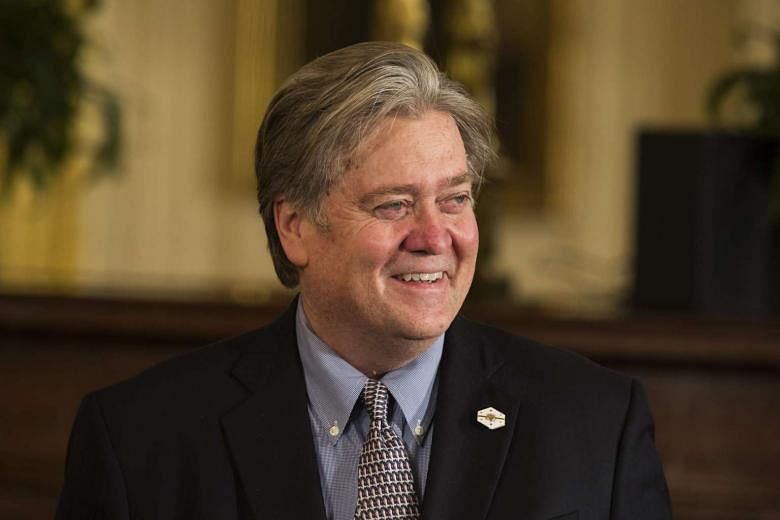WASHINGTON • United States President Donald Trump's decision to include Mr Stephen Bannon, his top political adviser, on the principals committee of the National Security Council (NSC) - where he will sit alongside the secretaries of state, Treasury, defence and energy, and other policymakers - has set off an eruption among the Washington national security establishment.
The council is no place for political creatures, many have argued. It is the place where the nation's deepest intelligence secrets, its fluctuating hierarchy of national interests and its jockeying-for-power Cabinet members combine as policy differences are hashed out. It is where decisions about war, from Vietnam to Iraq; drone strikes in Pakistan; and conflicts in cyberspace unfold over hours of meetings. With stakes that large, it has always been about politics - from grand strategy to petty scorekeeping.
Mr Trump amended his NSC reorganisation on Monday, to add the Central Intelligence Agency (CIA) to the group. Spokesman Sean Spicer said Mr Trump made the change out of respect for director Mike Pompeo and others at the agency.
The NSC was created in 1947, when the CIA and the Defence Department came into being. It started small and, over time, ballooned to such a size that every new president swears he will pare it back. Presidents of both parties have been control freaks, with the council the instrument of control.
"Each individual president has tremendous latitude to shape both the institution of the NSC and the formal and informal mechanisms of his or her White House national security apparatus," Mr David Rothkopf wrote in his history of the council, Running The World.
The formal instrument is the principals committee, made up of the president, vice-president and all the Cabinet members. That is what Mr Bannon joins, meaning he won the first week's access-trust-influence sweepstakes. The chairman of the Joint Chiefs of Staff and the director of national intelligence, who were regular members of the council under former president Barack Obama, will now attend only if "issues pertaining to their responsibilities and expertise are to be discussed".

The White House points to similar language in Mr George W. Bush's orders for his council, though there was no director of national intelligence at the time.
Foreign diplomats may wonder who to deal with - the secretary of state or the national security adviser. During Mr Obama's first term, the national security adviser, Mr Thomas Donilon, carved out a few countries he dealt with himself, chiefly China, Saudi Arabia and Pakistan.
The council is not supposed to set policy - it is not meant to be "operational". But it frequently is. Travel with the secretary of state or the secretary of defence, and there will almost always be an NSC representative who can keep an eye on things and call back to the White House.
Dr Henry Kissinger, as former president Richard Nixon's national security adviser, ran circles around the then secretary of state, negotiated to end the Vietnam War and conducting secret diplomacy with China. When he became secretary of state, he kept the national security adviser job.
And Mr Bannon is not the first political operative to sit in on council meetings. During the Obama administration, chief political adviser David Axelrod often sat in, but he was never a formal member.
NYTIMES

